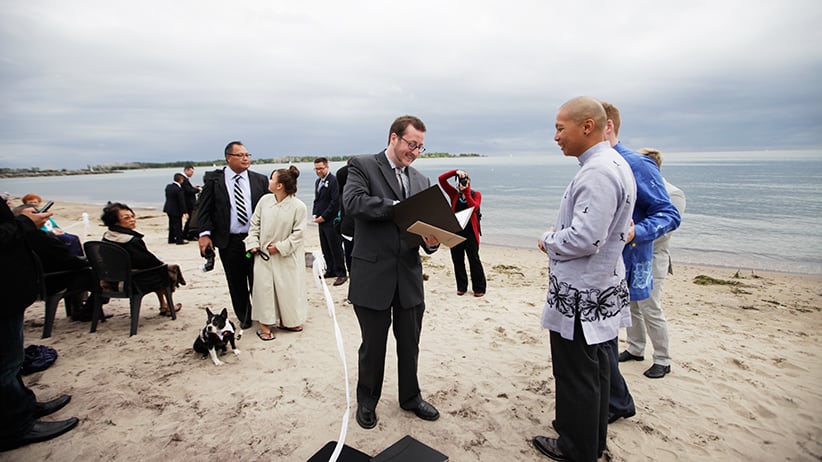Video: Two years, 100 gay weddings. #LoveWins
Arran Liddel, who specializes in LGBTQ unions, talks about lessons learned on the job
Share
As part of 2015 Jobs Report, we profiled a few Canadians who are boldly setting forth on some unusual, fascinating and downright cool jobs. In the profile below, Genna Buck speaks to Arran Liddel.
ARRAN LIDDEL
Wedding officiant, Toronto Ceremonies
Average yearly income: $5,000-$20,000
How did you get into this field?
I was a member of the Ontario Humanist Society. The chair of the ceremonies committee said, “Have you ever thought about being an officiant?” At first I was very resistant; I’m an introvert. I said I’d give it a try. It ended up taking off quickly.
What education or skills do you need?
The society has a training program. They ask for an undergraduate degree and experience working with people. You have to have good boundaries, good ethics. When you’ve met all the requirements, which include a mentoring component, they submit the paperwork to have you licensed. The process takes about a year.
Describe a typical day on the job.
I meet with every couple before they book me, so we can get to know each other. If it feels like a good fit, we book, and I work with every couple to create something very personal. There are a few legal things that have to be said; the rest is open. On the day of the wedding, I turn up an hour beforehand. We do a walk-through of the ceremony. Guests assemble, and I do paperwork and prepare the marriage register.
What is your most memorable moment?
A couple I married on Toronto Island had just 12 guests. Their close family was there and one father. The family was religious, so it was a big deal that the father turned up. It was very sweet. They wanted to get married barefoot under a willow tree and they came wearing flowers in their hair. One of the guys serenaded the other one with his guitar.
What are the pros and cons?
I have met fantastic couples. I have also been able to marry a couple of friends, which has been amazing. There’s a very flexible schedule. You get to see some of the most beautiful parts of the city. In most cases, at the end of work, I’m handed a glass of champagne and people cheer. The cons are that it’s seasonal and it wouldn’t financially sustain most people.
What is your advice to would-be officiants?
One of the [Humanist] requirements is being an active member for a year. Talk to someone who does it. Often, people think it’s easy money. For every half-hour ceremony, 10 hours of work goes into it. Writing skills would be good, because you’re creating the ceremonies. Have a deep understanding of how things can be different in LGBTQ communities.

[widgets_on_pages id=”Education”]